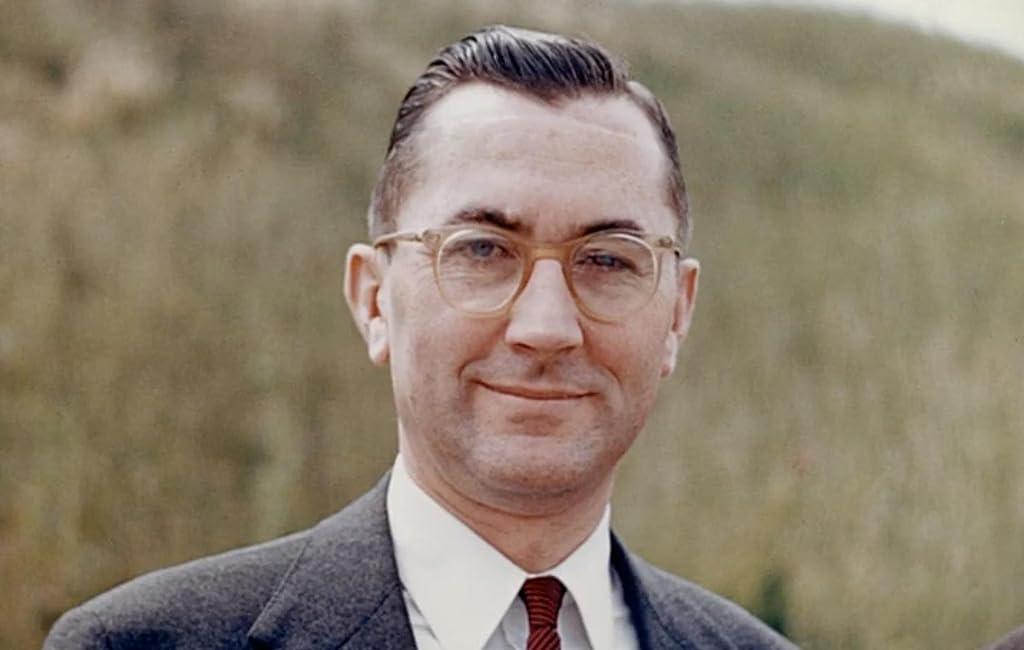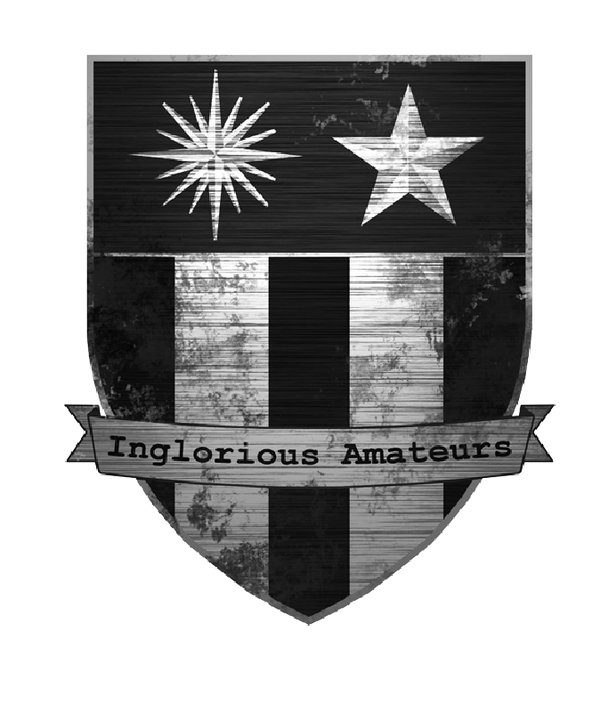
William Colby
Share
03 September 1973 - On this day 50 years ago, William E. Colby became the 10th Director of Central Intelligence. He lead a remarkable career, from the early days of the Office of Strategic Services (OSS) to covert action programs in Vietnam, and leading the CIA during a period of significant challenges and changes in the United States and around the world.
OSS
William E. Colby joined the Office of Strategic Services (OSS) in 1943 during World War II, cheating his way through an eye exam to be qualified for parachute training. At the age of 24 he commanded Jedburgh Team Bruce and parachuted into France to run operations. He later parachuted again into Europe and received a Silver Star for his activities. He later commanded an OSS Operational Group with Norwegian Commandos and took part in what he said was the first and only Army ski-parachute operations of the war.
Post War
The 1950s saw Colby return to Europe, this time as part of early Cold War activities. He was sent to Stockholm in 1951 to organize stay behind capabilities and groups as part of Operation Gladio. Similar networks were set up throughout Europe as a means to counter a possible Soviet invasion. He later spent time on anti-communist operations out of Rome.
Vietnam
In 1959, Colby's path led him to the bustling heart of intelligence operations in Saigon, South Vietnam. There he was deputy chief and later Chief of Station Saigon where he assumed a critical role in supporting the government of South Vietnamese President Ngô Đình Diệm. Colby's tenure in Vietnam was marked by his establishment of key relationships with Diem's family, especially Ngô Đình Nhu, the president's brother, with whom he developed a close bond. No doubt his time working with insurgency operations in the OSS gave him, and his fellow veteran officers, a distinct approach. Either way, he steadfastly believed that the villages held the key to the larger conflict – a conviction that underscored his strategic approach.
In 1962, Colby returned to the United States to become the deputy and later chief of the CIA's Far East Division. This shift in roles propelled him into the heart of Washington's policies in East Asia, including Vietnam, Indonesia, Japan, Korea, and China. His insights into these regions influenced critical decisions, yet he remained a vocal critic of the decision to withdraw support for President Diem.
In true “let the 7th floor guide your career” fashion, 1968 saw Colby's career veer back to Vietnam, taking on the role of deputy to Robert Komer who headed Civil Operations and Revolutionary Development Support (CORDS). Tasked with streamlining efforts against the Communists, Colby succeeded Komer as the head of CORDS in its final days. Among its components was the controversial Phoenix Program, aimed at disrupting the "Viet Cong Infrastructure." While the program's methods raised ethical questions, Colby consistently asserted that it did not endorse assassination or torture.
Post Vietnam to DCI
Colby returned to Washington in July 1971 and became executive director of CIA. In 1973 then DCI James Schlesinger tapped Colby to become the head of the clandestine service, in part because of Colby’s shared views on his reformist approach CIA. Later that year Nixon reshuffled his agency heads and made Schlesinger secretary of defense, Colby emerged as a natural candidate for DCI, apparently on the basis of the recommendation that he was a professional who would not make waves. His tenure as DCI, which lasted two-and-a-half tumultuous years, was overshadowed by the Church and Pike congressional investigations into alleged US intelligence malfeasance over the preceding 25 years.
Colby's time as DCI was also eventful on the world stage. His tenure oversaw the outbreak of the Yom Kippur War, which was largely a surprise to CIA and Israeli itself. As with any seemingly unpredictable world event, an intelligence surprise of this nature apparently damaged Colby’s credibility with the Nixon administration. Colby participated in the National Security Council meetings that responded to apparent Soviet intentions to intervene in the war by raising the alert level of US forces to DEFCON 3 and defusing the crisis.
In 1975, after many years of involvement, South Vietnam fell to Communist forces in April 1975, a particularly difficult blow for Colby, who had dedicated so much of his life and career to the American effort there. Key world events in Angola, and the Middle East also took center stage, along with a sharp uptick in arms-control efforts.
Colby also focused on internal reforms within the CIA and the intelligence community. He attempted to modernize what he believed to be some out-of-date structures and practices by disbanding the Board of National Estimates and replacing it with the National Intelligence Council. In a speech from 1973 addressed to NSA employees, he emphasized the role of free speech in USA and moral role of CIA as a defender, not a detractor, of civil rights, an attempt to rebut the then emerging revelations of CIA and NSA domestic spying. He also mentioned a number of reforms intended to limit excessive classification of governmental information. All of these are remarkably topics of much concern to this day.
Colby’s tenure of DCI ended in late 1975 when President Ford, under advisement of his national security staff, replaced Colby with George H.W. Bush. William E. Colby's time as Director of the CIA reflected the challenges faced by intelligence agencies during an era of increased scrutiny and evolving foreign policy dynamics. His leadership played a role in shaping the CIA's response to these challenges and in implementing reforms to enhance transparency and accountability within the agency.
